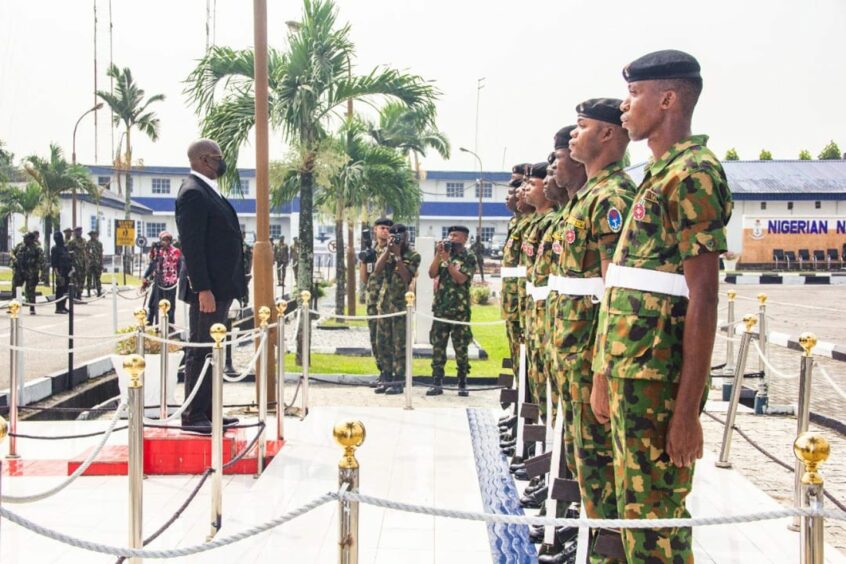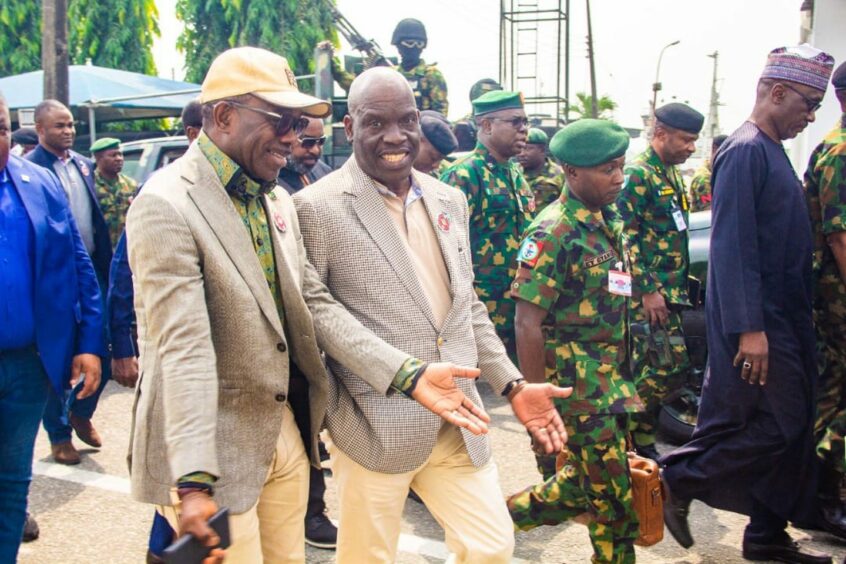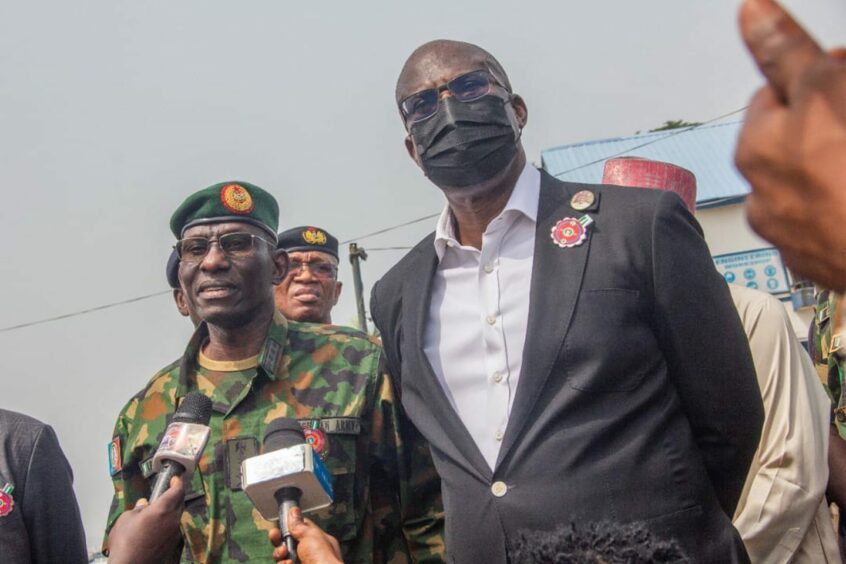
Nigeria’s oil industry bigwigs kicked off the year with a celebration of military action on bunkering – but with little mention of systemic shortcomings in keeping track of production.
Nigerian Minister of State for Petroleum Resources Timipre Sylva and Nigerian National Petroleum Corp. (NNPC) head Mele Kyari visited troops in Port Harcourt yesterday. Much was made of progress security forces had made in tackling bunkering and sabotage.
The government delegation aimed to boost “the morale of troops on the operational frontline of the collaboration on securing the nation’s oil & gas assets in the Niger Delta”.
On the HMSPR's delegation were the CDS, Gen. Lucky Irabor; CNS, Vice Admiral Awwal Z. Gambo; GCEO @nnpclimited @MKKyari; Chief Executive NUPRC, Engr. Gbenga Komolafe; Chief Executive NMDPRA, Engr. Farouk Ahmed and EVP Upstream, Engr. Adokiye Tombomieye. pic.twitter.com/NysySf43Q0
— NNPC Limited (@nnpclimited) January 5, 2023
The Auditor General published a critical report this week, which garnered little response though. The report covered the years from 2016 to 2020, raising concerns about accounting of exports and monitoring.
The most eye-grabbing detail was that 17.88 million barrels of oil, worth $1.02 billion, was exported without completing the required forms in the period.
NNPC denied that the cash was lost. The company does not “appoint inspection agents as alleged, but rather, it is the sole responsibility of the Federal Ministry of Finance,” NNPC said.
Adding it up
The AG reported a number of related issues. One result is that Nigeria’s Department of Petroleum Resources (DPR) had its own set of export volumes for 2016, 2017 and 2018. None of these three numbers tallies with the figures provided by Nigerian Export Supervision Scheme (NESS).
Metering appears to be a persistent problem for Nigeria, according to the AG report. The auditor called on the Nigerian Upstream Petroleum Regulatory Commission (NUPRC) to install modern metering systems at the Okono, Ebok and Forcados terminals. Authorities continue to “manually hand dip” storage tanks. NUPRC replaced the DPR under the Petroleum Industry Act (PIA).
The AG report highlighted problems at Nigeria LNG (NLNG). The gas exporter has “continually refused” access to state agents seeking access to its terminal to carry out inspections.
NLNG has asserted it relies on its own guarantees from the government that exempt it from such checks. The AG gave short shrift to this defence and went on to say this could “lead to continuous loss of gas revenue to government”. The report said where companies prevented access, they should face “appropriate sanction”.
When President Muhammadu Buhari took power in 2015, the government ordered the removal of the companies that had been overseeing exports. A tender was launched but, following “numerous petitions and controversies” on the flawed procurement process, it was cancelled.
The AG said this failure would have a “disastrous effect of capital flight and commercial fraud”.
Who pays?
The Ministry of Finance opted to pay inspection agents around $120mn, despite not receiving approval from the National Assembly.
The government commissioned the AG report, following concerns in the legislature about Nigeria’s oversight of its oil wealth. At the time, politicians claimed the DPR would be able to fulfil this role and there was no need for commercial agents.
This was not borne out by the report. Officials from the DPR, Nigerian Customs, Weights & Measures and NNPC have a poor record of carrying out checks. From 2017 to 2020, these agencies failed to take part in checks onboard ships.
While the DPR performed better at onshore checks, Customs and Weights & Measures continued their 0% attendance rate. The commercial agents, meanwhile, had a 100% attendance rate across the years and locations.
The Ministry of Finance should transparently procure companies to carry out inspections, the AG said. It did not mention an increased role for NUPRC.

 © Supplied by NNPC
© Supplied by NNPC © Supplied by NNPC
© Supplied by NNPC